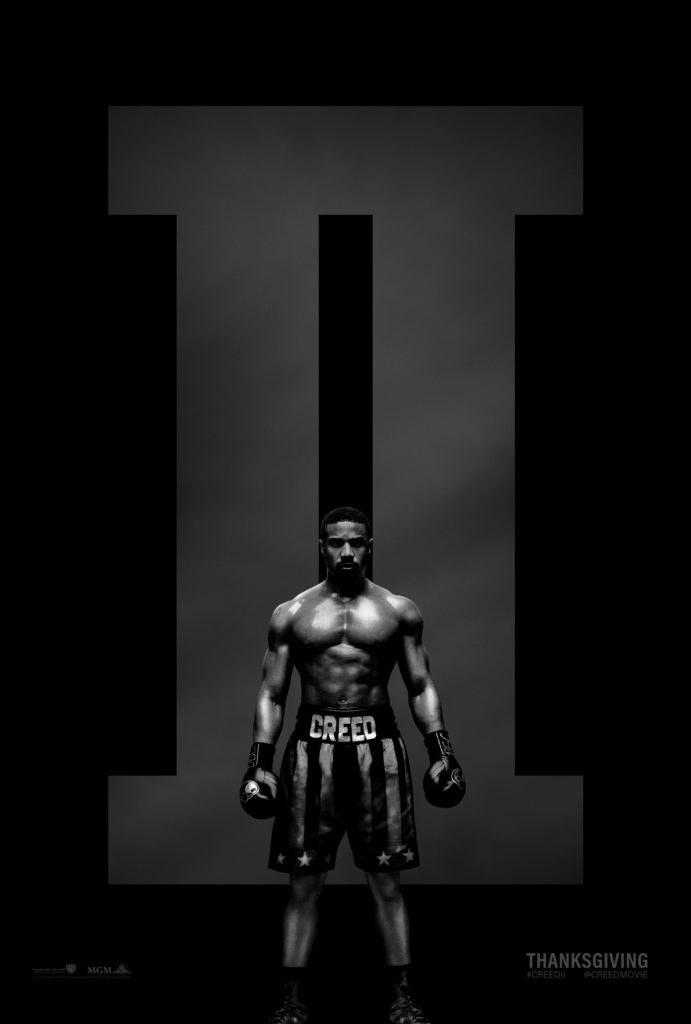


First of all, mad props to Sylvester Stallone for creating a character that has endured since 1976: Rocky Balboa. I am not ashamed to admit I have seen all the “Rocky” movies and that I will work a “Yo, Adrian” into a conversation. You know when you hear those first sounding bells of “Gonna Fly Now,” you feel like you can do anything. Even one-handed push-ups. Here we are 42 years later, and Rocky still has a place in our hearts. Sly wisely moved from protagonist to mentor, and has become the “Mickey” to Michael B. Jordan’s “Adonis ‘Donnie’ Creed,” the outside son of Apollo Creed. Rocky training and supporting the son of his ringside nemesis turned bromance Apollo was the plot of “Creed,” released in 2015 and directed by pre-Black Panther visionary, Ryan Coogler.
Already there are many places to talk about forgiveness in this storied legacy.
Will Apollo Creed’s children forgive their father for cheating on their mother with Donnie’s mother? How did Mary Anne Creed come to forgive Apollo for cheating on her to the degree she established a relationship with Donnie in the first place? (Sidenote: I haven’t seen “Creed 2” yet, but I hope there is a scene where Adonis Creed connects with Apollo Creed’s son and daughter we saw as kids running around the Creed house in Rocky II)
What is Rocky’s relationship like with Apollo’s family after he did not throw in the towel in Rocky IV, resulting in Apollo Creed being beaten to death by Ivan Drago?
Has Rocky forgiven Ivan Drago for beating the stank off his boy, and nearly literally and figuratively beating his own head off?
I ask these questions because the plot of “Creed 2” is a rematch between the son of Apollo Creed, and the son of Ivan Drago. Of course!
The sequel to “Creed” comes out this fall, and here is the trailer:
As a woman who blogs about the Bible, I note how often themes of forgiveness come up in popular culture, in television shows, books, films…a thing does not have to be religious in tone to address theological themes, because I believe whether one is a believer or not, forgiveness is something we wrestle with.
For some, there is the question of how much we can get away with before we have to ask for someone’s forgiveness. For others, forgiveness is a sign of weakness is a culture where respect is everything. For Black people in America, forgiveness is practically demanded of us when we are expected to forgive endless slights, to forgive those who have done great harm to us, to forgive people who would never offer an apology. For believers, forgiveness can be understood as transactional: “forgive us as we forgive” (Matthew 6:12). That should scare us to death. What if our forgiveness from God is contingent upon the degree to which we forgive others? Yikes! But I believe forgiveness is not so much for the offender as it is for the offended. Unforgiveness is like walking around with a gnarling tiger on your back: you are increasingly weakened by lugging the tiger around, plus everyone around you—including you—is at risk of those teeth. When Peter tried to find out the forgiveness loophole by asking,
Then Peter came and said to him, “Lord, if another member of the church sins against me, how often should I forgive? As many as seven times?” Jesus said to him, “Not seven times, but, I tell you, seventy-seven times. (Matthew 18:21-22)
He was clearly trying to find out when he was off the forgiveness hook. And Jesus gave him a number he was not ready for. This is often interpreted to mean let people walk all over you, and you take it, that is the Christian way. I disagree with that assessment. I think Jesus recognized immediately that Peter was looking for an out, and he gave him a number that made him rethink that…so Peter would realize that forgiveness is a never-ending process. Forgiving someone does not excuse the harm done to you. I think about this particularly with Apollo’s wife, Mary Anne (now played by Phylicia Rashad). How was she able to forgive Apollo for cheating on her with another woman who gave him another son? How did Donnie and Mary Anne come to relationship? Surely some aspect of forgiveness took place. I think forgiveness removes the fear from the event, like removing the stinger from a bumblebee. You may still hear the buzzing of the bee, but the bee has lost its potential to harm you. I think a lot of people struggle with God’s forgiveness because they can’t forgive themselves, they feel as though they have to make up for the deed. I think this is why Rocky agreed to train Donnie in “Creed,” because he struggles with forgiving himself for doing exactly as Apollo asked him to do (not throwing in the towel). Creed’s family would be understandably salty about that. And whether or not Rocky apologized to them, this is why forgiveness goes so far beyond somebody owing you an apology. It’s okay to mourn for an apology from someone who hurt you and refuses to acknowledge it. But sometimes, like Rocky, we can’t put our own guilt down long enough to even consider moving past anything. Yet, forgiveness is also about self-care and healing, acknowledging our hurt and pressing forward—it’s both communal and personal.
I will be very interested to see how Donnie and Rocky work out these multiple layers of forgiveness. Meanwhile, I’ll be off somewhere journaling about the people in my life that I need to forgive.